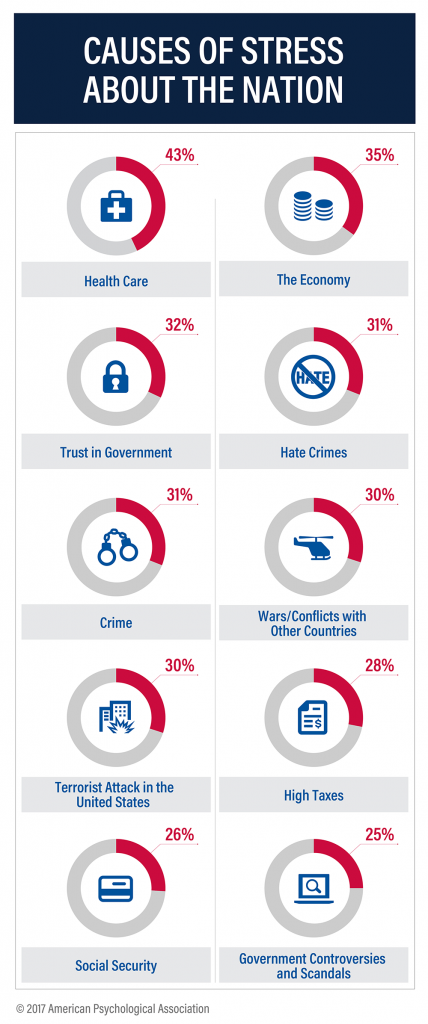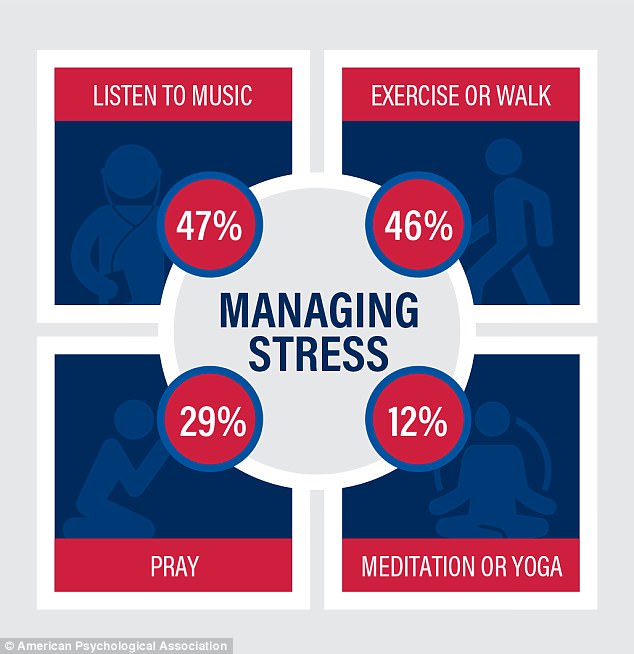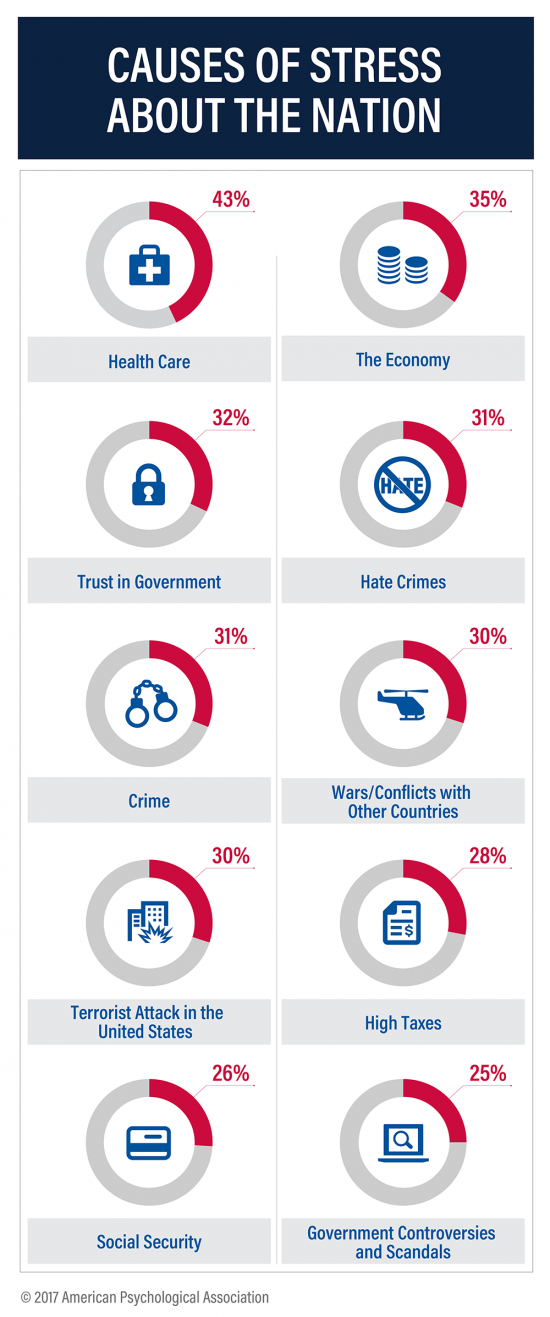 Above the economy, trust in government, crime, war, terrorism, and taxes, health care is the top cause of stress in America.
Above the economy, trust in government, crime, war, terrorism, and taxes, health care is the top cause of stress in America.
For ten years, the American Psychological Association has gauged Americans’ collective mood in their ongoing study, Stress in America. The latest report is The State of Our Nation, published this month, finding that we’re at the “lowest point in our nation’s history” according to 59% of Americans.
The 2016 national election in the U.S. raised the stress-stakes, when APA released a stress study we discussed here in Health Populi. The election season was a source of stress for 52% of Americans, the APA found. Six in 10 people said social divisiveness caused them stress when thinking about the U.S.
The fact that 59% of Americans say it’s the “lowest point” in the nation spans generations, APA notes, including Greatest Generation folks who lived through World War II, Vietnam era survivors, and people who experienced the September 11 attacks.
The specific issues causing stress currently are health care above all, over the economy. Health care is a particularly acute stress factor for Gen Xers and Boomers. Historically, money and work have topped the stressor-list in the APA polls.
Mining the details, note that:
- More women feel stressed out than men (women the percentage of stressed women growing and men falling)
- More Black and Hispanic men have higher stress levels than White men
- 7 in 10 Black adults said it was the lowest-point in U.S. history – more than White, Asian, or Hispanic adults
- Older adults’ (72 and over) stress is growing, although these Matures have less stress than younger people.
The poll was conducted online in August 2017 among 3,440 U.S. adults 18 and over.
This research is part of APA’s Mind/Body/Health campaign, with the objective of raising awareness of the physical and emotional implications of stress and the direct link between the mind and body.

Health Populi’s Hot Points: This week’s election in the state of Virginia revealed that for 4 in 10 voters, health care was their top issue as they entered the polls. Second was gun policy, according to an NBC News Exit Poll taken on Tuesday 7th November 2017.
Stress factors increasingly shape Americans’ well-being, the APA calls out. 75% of Americans reported at least one symptom of stress in the past month.

The emerging symptoms of stress are anxiety, anger and fatigue: one-third of Americans felt nervous or anxious, irritable or angry, and fatigue due to stress. Lying awake at night in the past month is one of the outcomes APA identified among 45% of Americans.
How to cope? One in two Americans said their stressed state compelled them to volunteer or support causes they believed in for constructive engagement. There were other health-making approaches, such as listening to music, exercising or walking, praying, and meditation or yoga.
The growing investment into the supply of digital health tools for mental/behavioral health, especially dealing with anxiety and depression, is looking to address this need.
One area of concern is that a majority of Americans (56%) felt they could have used more support in the past year. 42% see psychologists as a source to help manage stress, up from 38% in 2016.
Loneliness and social isolation is a social determinant of health – and is certainly playing a role in perpetuating a discontented state among Americans in 2017. Loneliness and isolation kill, as I wrote here on Health Populi earlier this year. Baking mental and behavioral health into public policies — in and outside of public health and healthcare — is one part of addressing the public health epidemic of stress in America. This will require both increased investment in evidence-based mental health programs, and integrating mental and behavioral health into primary care in U.S. healthcare delivery. Boosting opportunities to join together in social networks, offline and in our communities — in safe public spaces, faith-based institutions, exercise meet-ups in parks, in community gardens, senior centers and after-school gyms — also help solve isolation and its discontenting impacts.





 Thank you FeedSpot for
Thank you FeedSpot for